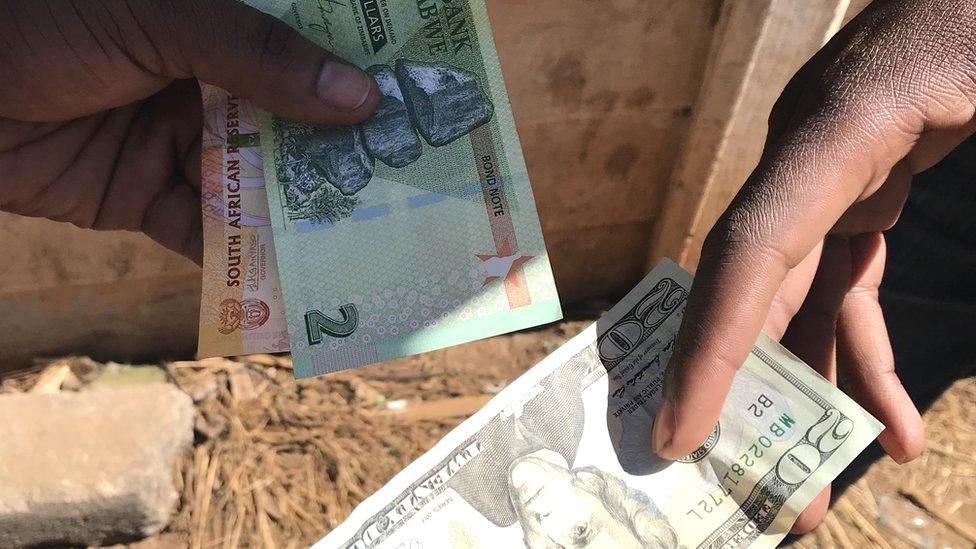Zimbabwe blocks Facebook, WhatsApp and Twitter amid crackdown
- Published
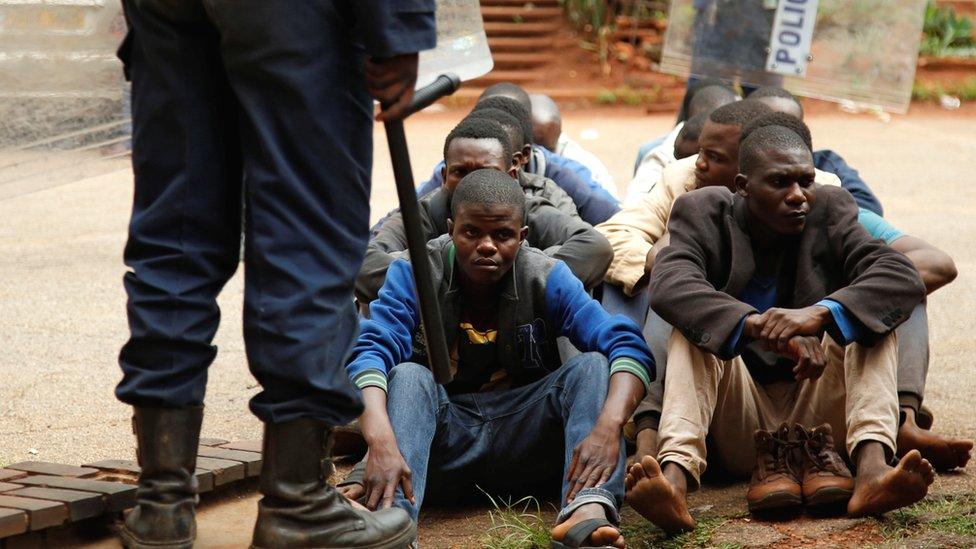
Hundreds of people have been arrested during the crackdown this week
Zimbabwe has blocked Facebook, Twitter and WhatsApp messaging apps amid a crackdown on days of violent protests.
A coalition of local human rights groups says at least 12 people have been killed and many more beaten and tortured by security forces this week.
The Zimbabwe Human Rights NGO Forum accused the authorities of cutting off the internet "to mask the massive human rights violations".
The protests were sparked on Monday by a sharp rise in the price of fuel.
The government has blamed the opposition and political rights groups for the protests, which has seen riot police clashing with protesters in the capital, Harare, and the southern city of Bulawayo after they lit fires and blocked roads using rocks.
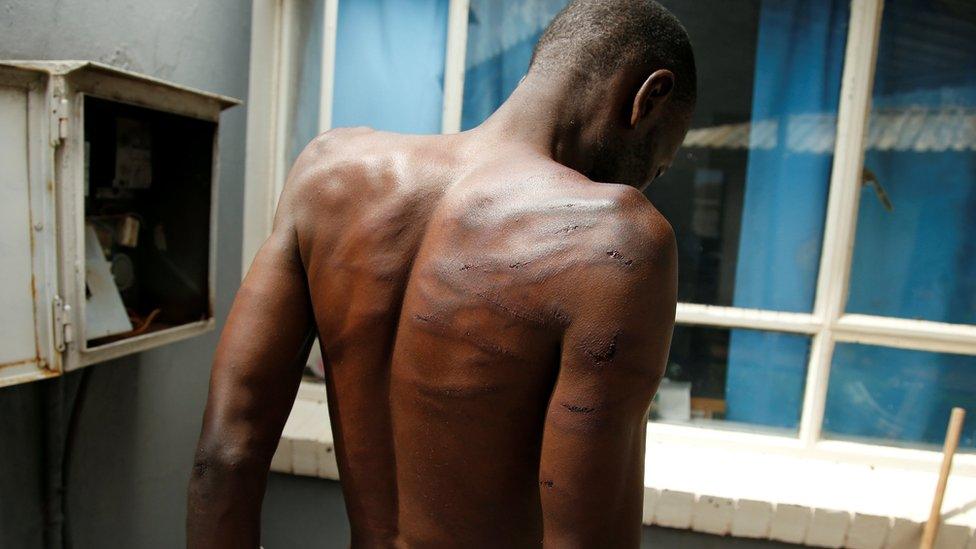
The UN has called on the government to halt the "excessive use of force"
There has been looting and some businesses and schools in the two cities have been forced to close. Soldiers are guarding petrol stations, where there are still long queues of motorists looking for petrol.
The UN has called on the government to halt the "excessive use of force" by security forces including firing live ammunition, and allegations of night-time door-to-door searches and beatings.
"Doctors' associations say more than 60 people were treated in hospital for gunshot wounds, this is not way to react to the expression of economic grievances by the population," Reuters news agency quotes UN human rights spokesperson Ravina Shamdasani as saying.
The Zimbabwe Human Rights NGO Forum said it had recorded at least 844 human rights violations in all.
On Thursday, prominent activist Evan Mawarire, who called for a stay-at-home protest on social media, was charged with subverting the government, a crime which carries up to 20 years in jail. He gained fame as a figurehead of the #ThisFlag protests against the former president, Robert Mugabe, in 2016.
Why has the fuel price increased?
President Emmerson Mnangagwa said the rise was aimed at tackling shortages caused by an increase in fuel use and "rampant" illegal trading.
But many Zimbabweans - worn down by years of economic hardship - suddenly found they could not even afford the bus fare to work.
Roads were barricaded by protesters earlier this week
They feel that the president, who is on a tour of Russia and Asian countries this week, is failing to live up to his promises following his election last year in disputed polls.
He is struggling to revive the economy, which is experiencing high inflation while wages have stagnated.
The southern African nation faces a severe shortage of US dollar cash and confidence in its bond notes, currency that can only be traded in Zimbabwe, is low.
The bond notes, or "bollars", are supposed to be worth the same as the dollar but have lost value because of a lack of foreign currency backing the note, and are now worth much less than a dollar.
The fuel hike means petrol prices rose from $1.24 (£0.97) a litre to $3.31 , with diesel up from $1.36 a litre to $3.11.
The new prices mean Zimbabwe now has the most expensive fuel in the world, according to GlobalPetrolPrices.com, external

How can the government turn off the internet?
By Chris Fox, technology reporter
Whether you get online using the phone line at home or access the internet over a mobile phone network, the websites you visit pass through your internet service provider (ISP) before they get to you.
It is therefore easy for the government to order ISPs to shut off access to specific services and websites or the entire internet.
Econet says this is what has happened in Zimbabwe: it was ordered to block access for its subscribers.
It is not the first time ISPs have been ordered to block services. In 2016, a judge in Brazil ordered ISPs to block access to WhatsApp, after its owner Facebook failed to hand over information requested in a criminal investigation.
In the UK, ISPs are regularly ordered to block access to websites offering films and music for download illegally.

Is there a total internet shutdown?
The authorities did cut off internet access across the country earlier in the week and again on Friday morning - though by the afternoon there were reports of an intermittent restoration.
However access to all social media and WhatsApp apps has remained blocked throughout the week.
If there is a partial internet connection, some users can bypass the social media blockade by using Virtual Private Networks (VPN), which can hide a user's location.
The BBC's southern Africa reporter Andrew Harding says the internet blackout has added to a sense of deepening crisis for a country which had hoped its worst years were over.
Repression was a hallmark of the governing Zanu-PF under long-time leader Robert Mugabe, who was ousted in November 2017 in a military takeover. It does not seem like much has changed since he was pushed out, our reporter says.
- Published15 January 2019
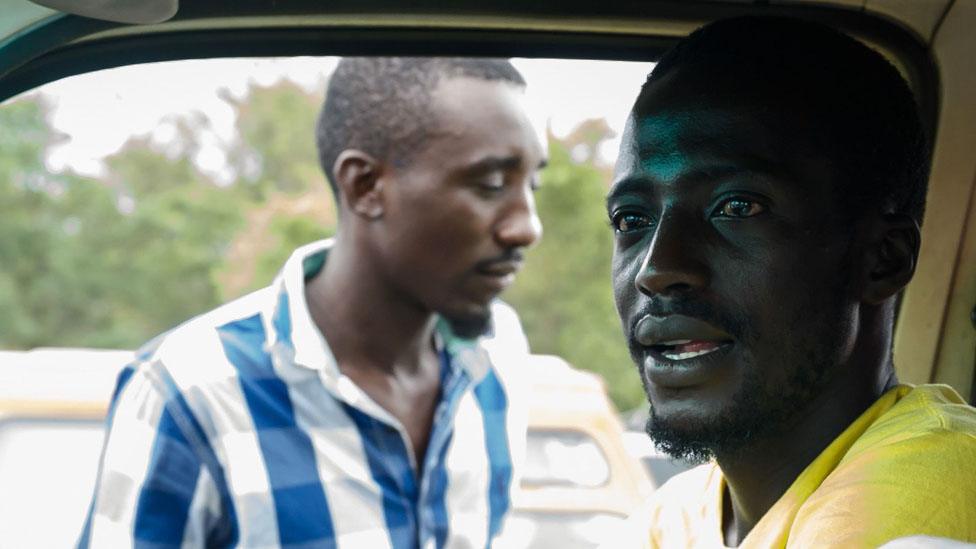
- Published25 December 2018

- Published12 October 2018
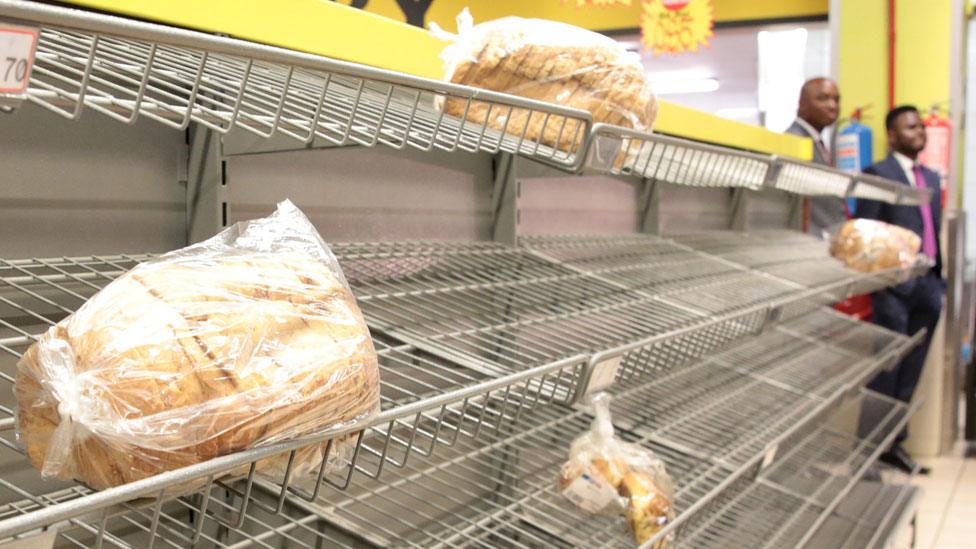
- Published25 July 2018
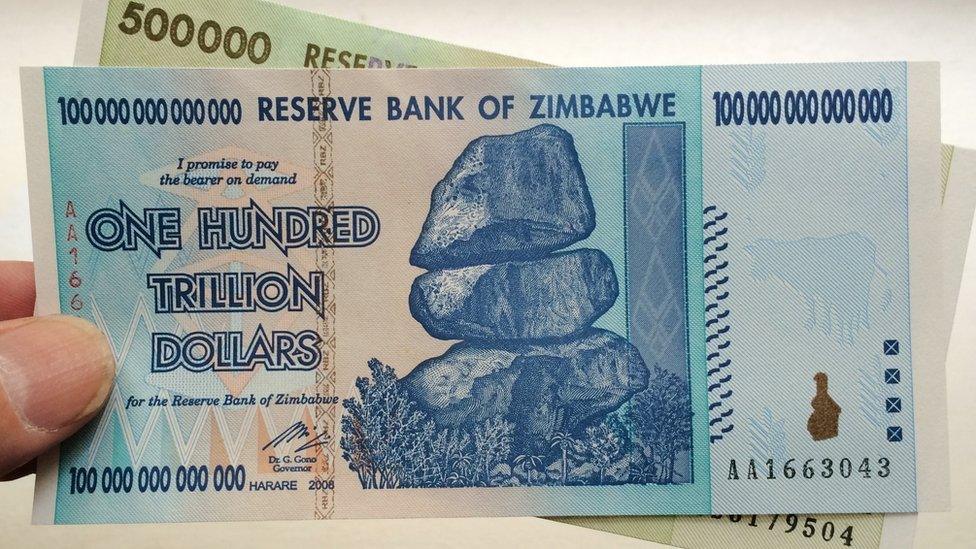
- Published26 July 2018
